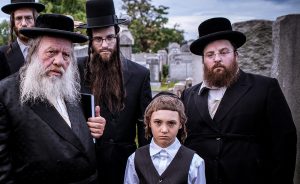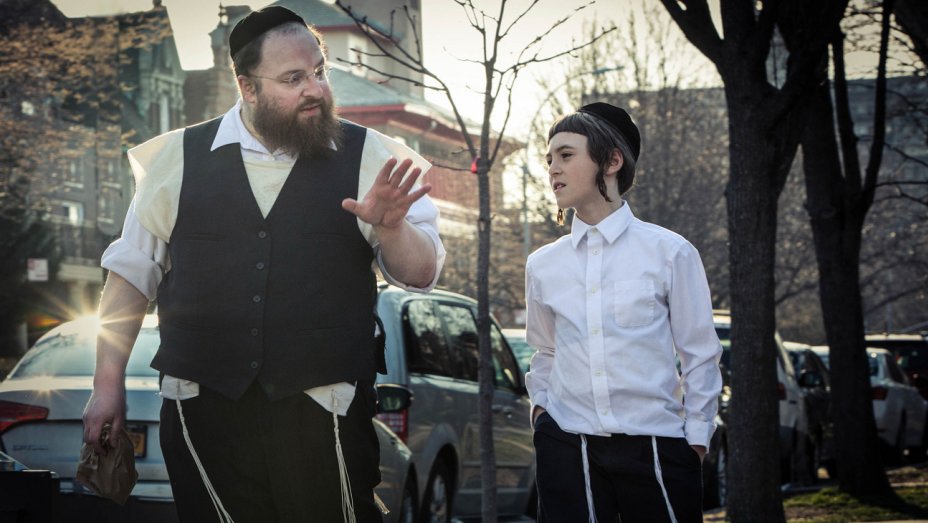Menashe: Faith, fatherhood shine
3 out of 4 stars
Menashe Lustig’s a slob, and to make matters even worse, the disheveled, fat grocery store clerk has only one option if he’s to regain the custody of his son after the death of his wife: remarry.
Lustig is by no means a bad person. He has good intentions, yet they are frequently undermined and now he finds himself alone, without the woman and son he loved.

It would be so easy to not like Lustig (same name in real life) in director Joshua Z Weinstein’s film, Menashe, set in the Hasidic community in Borough Park, Brooklyn, N.Y., where all men wear black suits, white shirts and black hats and live life based on Talmudic law.
But as the 81-minute film, which is in Yiddish with English subtitles, progresses, Lustig becomes a symbol of a man struggling between conformity and independence.
Lustig learns from his rabbi, “Ruv” – played very well by Meyer Schwartz – that Lustig’s preteen son Rieven (Ruben Niborski) will remain in the care of his late wife’s brother Eizik (Yoel Weisshaus) until he gets his life together both financially and emotionally.
Eizik is everything Lustig isn’t – successful, respected, wealthy, disciplined and physically fit. Eizik’s also going to get custody of Rieven if Lustig can’t find a wife, since Hasidic law prohibits a child being raised in a home without a mother.
Lustig’s mission to matrimony is engaging, as he struggles with his reluctance to settle for a quick marriage set up by a matchmaker, but he’s also unwilling to give up custody of his son.
Weinstein deserves credit for his approach, even though the film is in a language spoken by very few, which could prevent it from reaching its potential at the box office. But that doesn’t mean it’s a bad film.
Menashe is just the opposite, as it’s a compelling drama that delves into a society that Hollywood largely ignores.
Menashe’s achievement by delivering such a compelling film is even more impressive considering nearly the entire cast was making their debuts.
Weinstein gives the audience a look into a patriarchal society where women are segregated in public and prevented from attending college.
But Weinstein also doesn’t criticize or condemn the religion’s ways. He simply uses his camera to shine a light on a society that’s often left in the dark.

Jon Gallo is an award-winning journalist and editor with 19 years of experience, including stints as a staff writer at The Washington Post and sports editor at The Baltimore Examiner. He also believes the government should declare federal holidays in honor of the following: the Round of 64 of the NCAA men’s basketball tournament; the Friday of the Sweet 16; the Monday after the Super Bowl; and of course, the day after the release of the latest Madden NFL video game.

